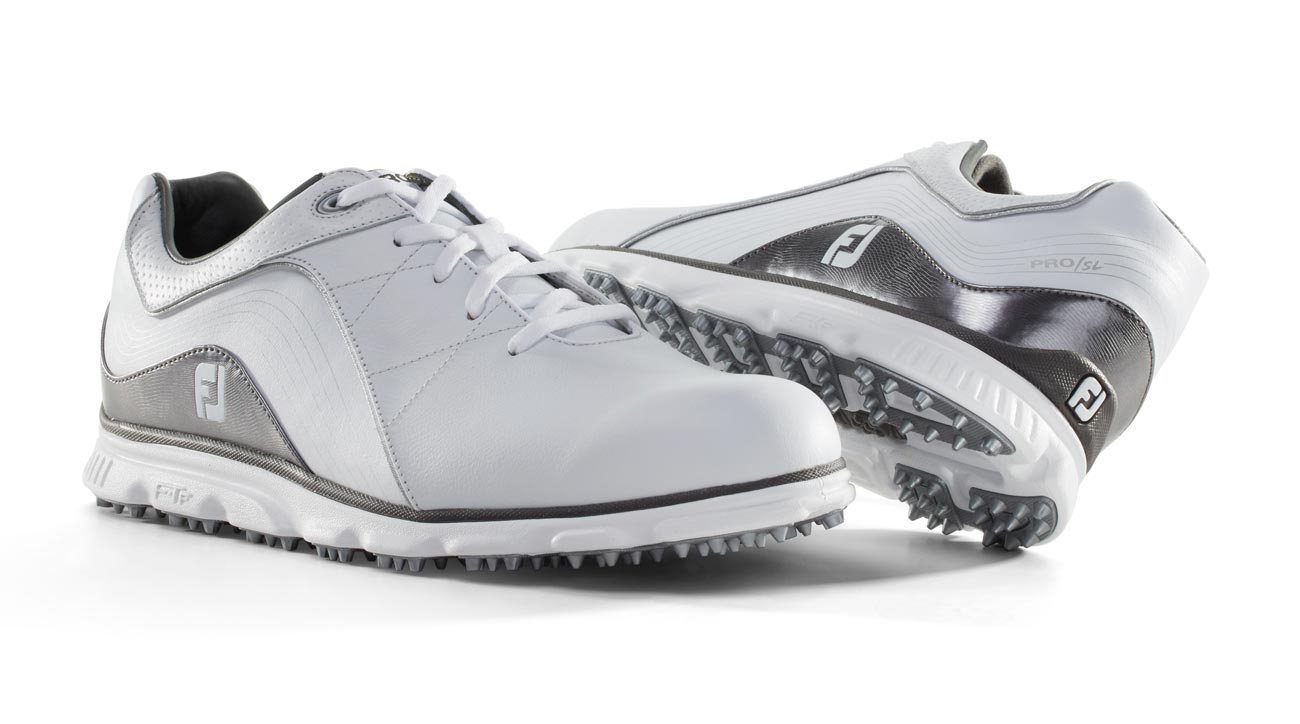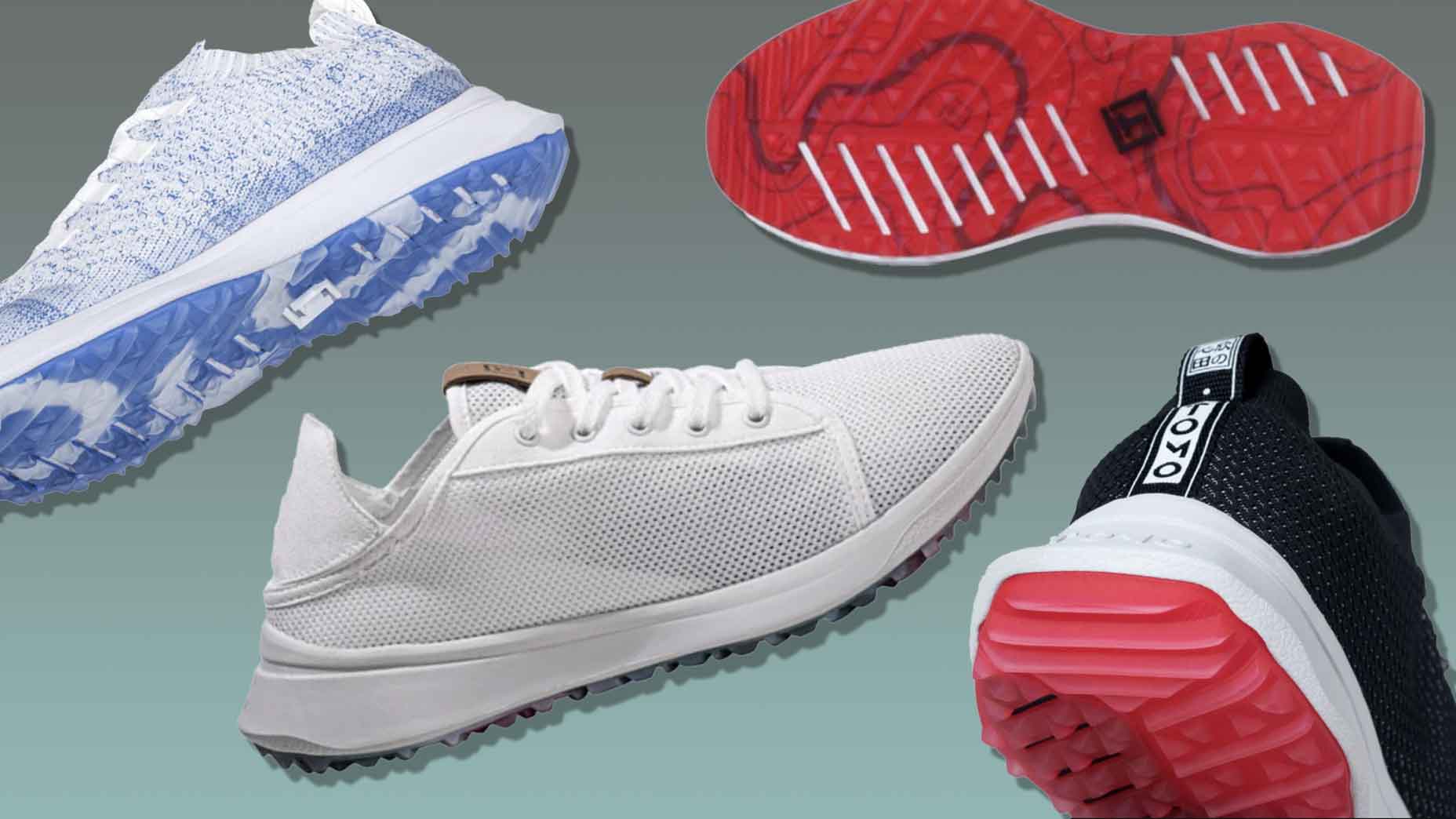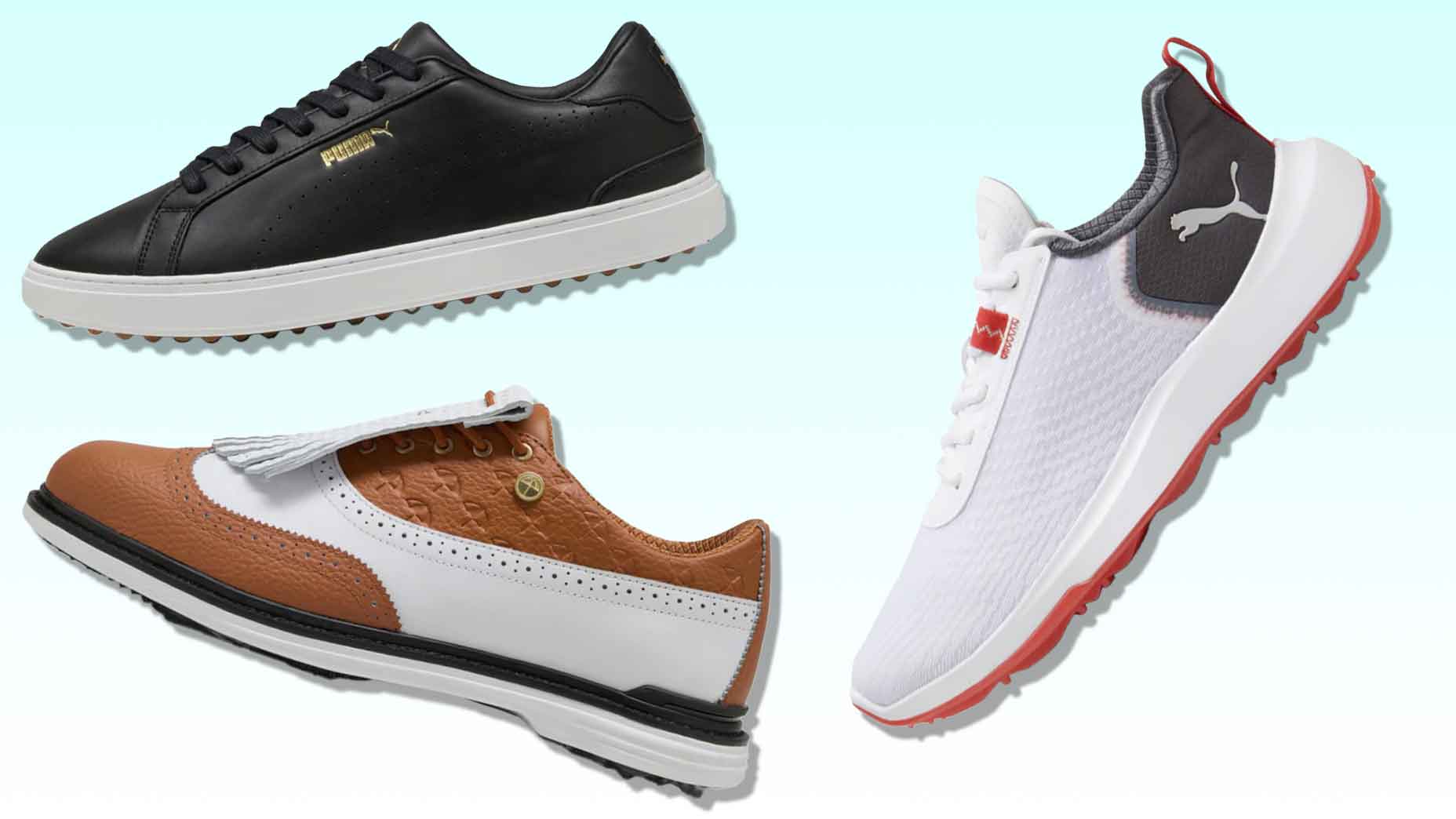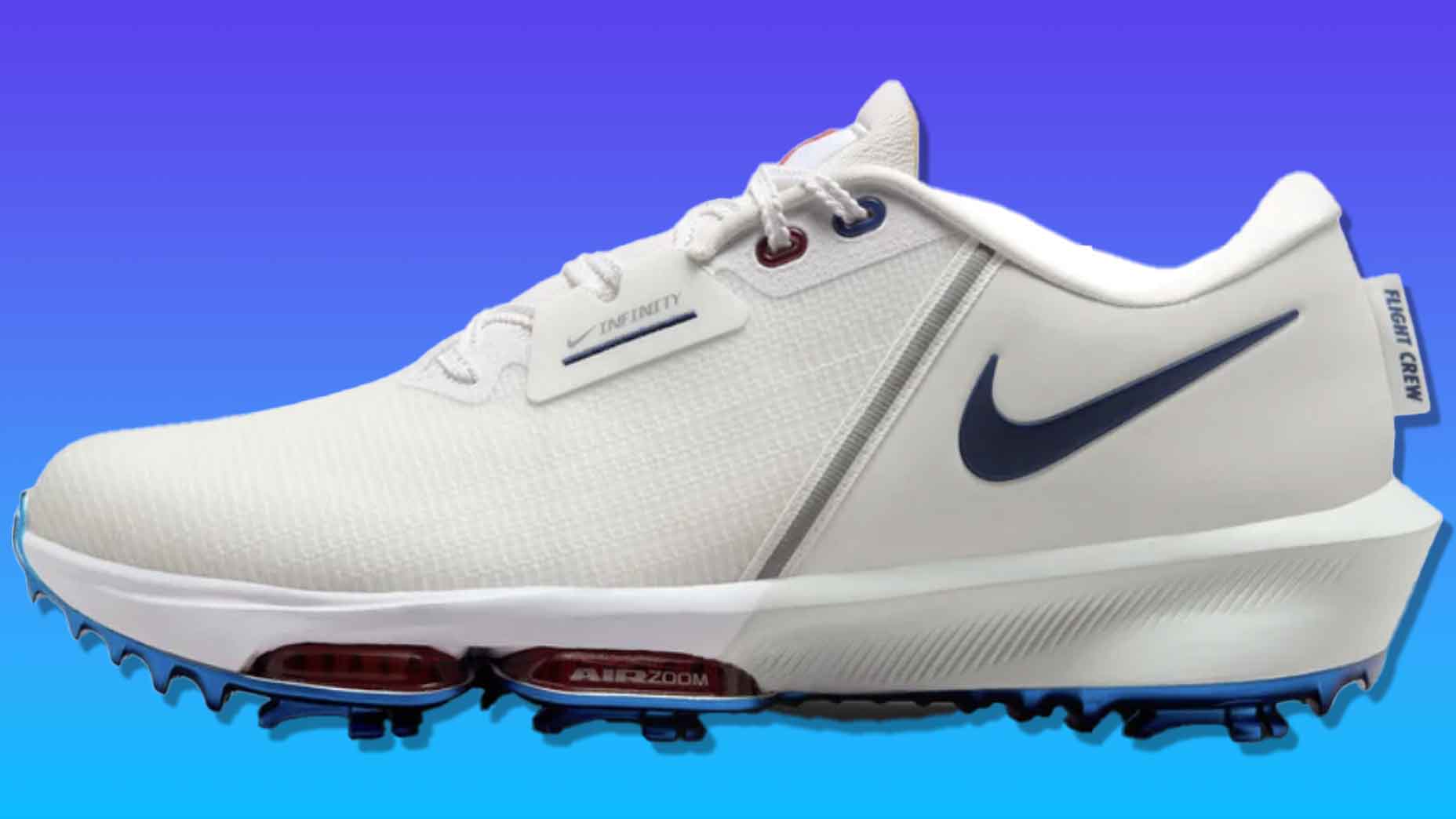When you’re driving your car, the tires are your only point of contact with the road. Similarly, on the course, the soles of your golf shoes are the only point of contact with the ground. Think of the last time you slipped as you swung. How did that shot turn out? Traction and stability are everything.
In recent years, golfers are taking a close look at whether spikeless shoes will give them the traction and stability they need. Many players find that the dramatic evolution of spikeless shoes makes them worthy of serious consideration.
From Spiked to Spikeless: A Short History
In the mid-19th century, Scottish golfers hammered nails into their leather-soled boots. When armed with “spikes,” they could better cope with damp, wet conditions on the links. Still, these nails could come loose and skewer the foot.
Before the end of the 1800s, permanent screw-in metal spikes appeared. Replaceable metal spikes arrived about half-a-century later. They improved traction, although the greens did not fare too well. On hard floors, metal-spiked shoes sent unsuspecting players skating to oblivion. And, wayward golfers weaponized with metal spikes gouged more than a few wooden floors. Eventually, soft plastic spikes arrived to address these common concerns. Metal spikes quickly went the way of the studded tire.
Next, companies like Adidas, Puma and Ecco introduced spikeless shoes. They were so versatile that they could be worn both on and off the course. At first, some pros and hard-swinging amateurs were skeptical about these shoes with the little rubber nubs. Forsaking the anchoring of spikes in the turf seemed foolhardy to some.
Spikeless shoes were originally thought of as nothing more than glorified sneakers. The rubber nubs provided reasonable stability for light swinging, casual players. However, the innovative footwear did not excite competing professionals, low-handicappers and those with high swing speeds.
Now, that’s all changed. A number of top touring pros can attest to it.
Spiked vs. Spikeless Today
Grant Knudson, head of footwear and accessories at Puma Golf, weighs in on the spiked vs. spikeless debate. He suggests that we’re moving toward a 50/50 split between the two. Keith Duffy, senior product manager at FootJoy, suggests that players experiment with spiked and spikeless to determine personal preference.
As spikeless golf shoes have improved, so, too, have spiked golf shoes. Prevailing course conditions and versatility are deciding factors for many players. Knutson says some players prefer spiked shoes on difficult terrain or in wet conditions. The versatility of spikeless golf shoes persuades others. They’re great if you also want to wear them in your car or on the plane.
Fred Couples Goes Spikeless at The Masters
Fred Couples arrived at the 1st tee at the 2010 Masters wearing a pair of spikeless Ecco golf shoes. At the time, some thought he was wearing boat shoes or tennis shoes. The easy-swinging 1992 Masters champion had more motivation than most. Spikeless shoes reduced the stress on his famously temperamental back.
In a few short years, spikeless golf shoes have come a long way. Advanced forging techniques strengthen shoes for lasting stability. Sophisticated traction patterns conquer the varied conditions players inevitably encounter.
Busy, on-the-go golfers appreciate the fact that they can don their spikeless shoes at home and wear them to and from the course. They can even wear them on errands or when they stop for a sandwich after their round.
Rating Spikeless Golf Shoes
Players once faced a stark choice between spikeless for comfort and spiked for performance. Those days are long gone. Both competitive and recreational golfers recognize this. Soon, the spikeless crowd will be in the majority.
Today’s top spikeless shoes have various strengths. Some are more comfortable, lighter in weight or better in wet weather. You’ll want to decide what’s most important to you — feel, stability, support, energy return, style, weight, performance or breathability.
To get started, players should begin by asking themselves basic questions. How wet or dry is the climate? For example, desert golfers will have different priorities than those in south Florida. Do you often play early in the day before the dew burns off? How hilly are the courses you play? How active or quiet are your feet when you swing?
Top Spikeless Golf Shoes
Today’s leading spikeless golf shoe brands include FootJoy, Puma, Adidas, Ecco and Nike. Let’s take a quick look at leading designs from each of these manufacturers.
FootJoy Pro/SL
FootJoy golf shoes have been among the industry’s leading sellers for many years. The Pro/SL is one of its most popular spikeless golf shoe models, both on and off the tour. Major winners Adam Scott and Louis Oosthuizen are among the touring pros that have worn the FootJoy Pro/SL. The design offers “tour-caliber traction” and impressive foam cushioning.
The Pro/SL delivers a persuasive combination of stability, support and all-weather performance. The sole’s molded traction elements are designed to grip the various surfaces players encounter on the course. Golfers get all of this along with exceptional comfort.
FootJoy’s Pro/SL is also available with the Boa Fit System.
Puma Ignite PWRSport Pro
Puma’s Ignite PWRSport Pro delivers trendy style, athletic performance and overall functionality. Puma’s PWRFrame tech offers extra protection in high-stress areas. The lightweight microfiber upper repels water while letting moisture escape. Veteran golfers who remember how heavy muddy leather shoes got in the rain will appreciate how far Puma has advanced golf shoe design.
The rubber grid sole on this spikeless Puma golf shoe features 39 hexagons for multi-directional traction. Another 24 chevron-shaped lugs increase traction in key areas. Get the traction you need in both wet and dry conditions. In the midsole, proprietary Ignite foam delivers stability and dynamic energy return. Breathable, lightweight uppers feature leather accents. You’ll feel more like you’re heading out for a run or to the gym.
Adidas Adipower 4orged S
The Adipower 4orged S Adidas golf shoe comes with the advanced PureMotion outsole. It features strategically placed Adiwear traction for improved grip, performance and stability. The Boost foam midsole delivers energized cushioning that maintains comfort throughout the round. The Bounce foam forefoot also enhances cushioning for lasting comfort.
The breathable, waterproof upper features advanced ClimaStorm protection. Keep your feet dry in wet weather as well as in hot, humid conditions. The forefoot is a bit wider than some others. Adidas suggest this improves both traction and comfort. Enjoy enhanced fit courtesy of the FitFoam sock liners that mold to the contours of your feet. Adidas’ forging technique combines pressure and heat to improve both stability and lateral support.
Adidas spikeless golf shoes have been worn by various touring pros, including former World No. 1 Justin Rose.
Ecco Golf Street Retro Hydromax
Masters winner Fred Couples has been a fan of spikeless Ecco golf shoes for a decade already. Like other Ecco designs, the Golf Street Retro features yak leather from the company’s own tanneries. It is a refined leather that is strong and lightweight, and it retains its shape.
Ecco uses Gore-Tex technology to prevent moisture intrusion while simultaneously letting moisture escape. The soles deliver excellent traction on virtually any surface.
Nike Roshe
This Roshe is a spikeless Nike golf shoe that optimizes features important under dry conditions. What it lacks in waterproofing it gains in breathability and comfort. The lightweight, highly breathable mesh upper keeps your foot cool. An injected midsole is quite soft and flexible.
Nike’s innovative outsole design uses pressure mapping to deliver great traction in the spots where you most need it. Can’t stand debris in your shoes? The Nike Roshe design keeps debris out by using an elastic gusset on the tongue.
Of course, all these major brands include women’s and kids shoes in their lineup. Top sellers for women include the Ecco Women’s BIOM Hybrid 2, Nike Women’s Roshe, Puma Women’s Monolite Cat and Foot Joy Women’s Superlites. Women’s golf sandals are also selling well. Sandbaggers Ladies Galia is a popular design.
The Nike Junior Roshe, Puma Junior Grip Fusion Sport Disc and FootJoy Junior Leisure are some top-sellers for kids.
Before You Buy: Consider Proper Fit
Duffy likens the fit of a golf shoe to that required in a ski boot or hockey skate. As a glove fits the hand, so too should a shoe fit the foot. A precise fit is very much related to athletic performance. Duffy says that about seven in ten golfers wear the wrong size golf shoe. Too big is more common than too small.
Any extra play inside the shoe reduces energy transfer. This can reduce swing speed and control in the process. Also, wrong-sized shoes tend to cause blisters.
Knutson says that “online purchasing has complicated the matter” of proper fitting. He recommends that a player head to a local golf shop for a proper fitting. If you’re talking golf shoes, that means a golf pro or properly trained assistant.






